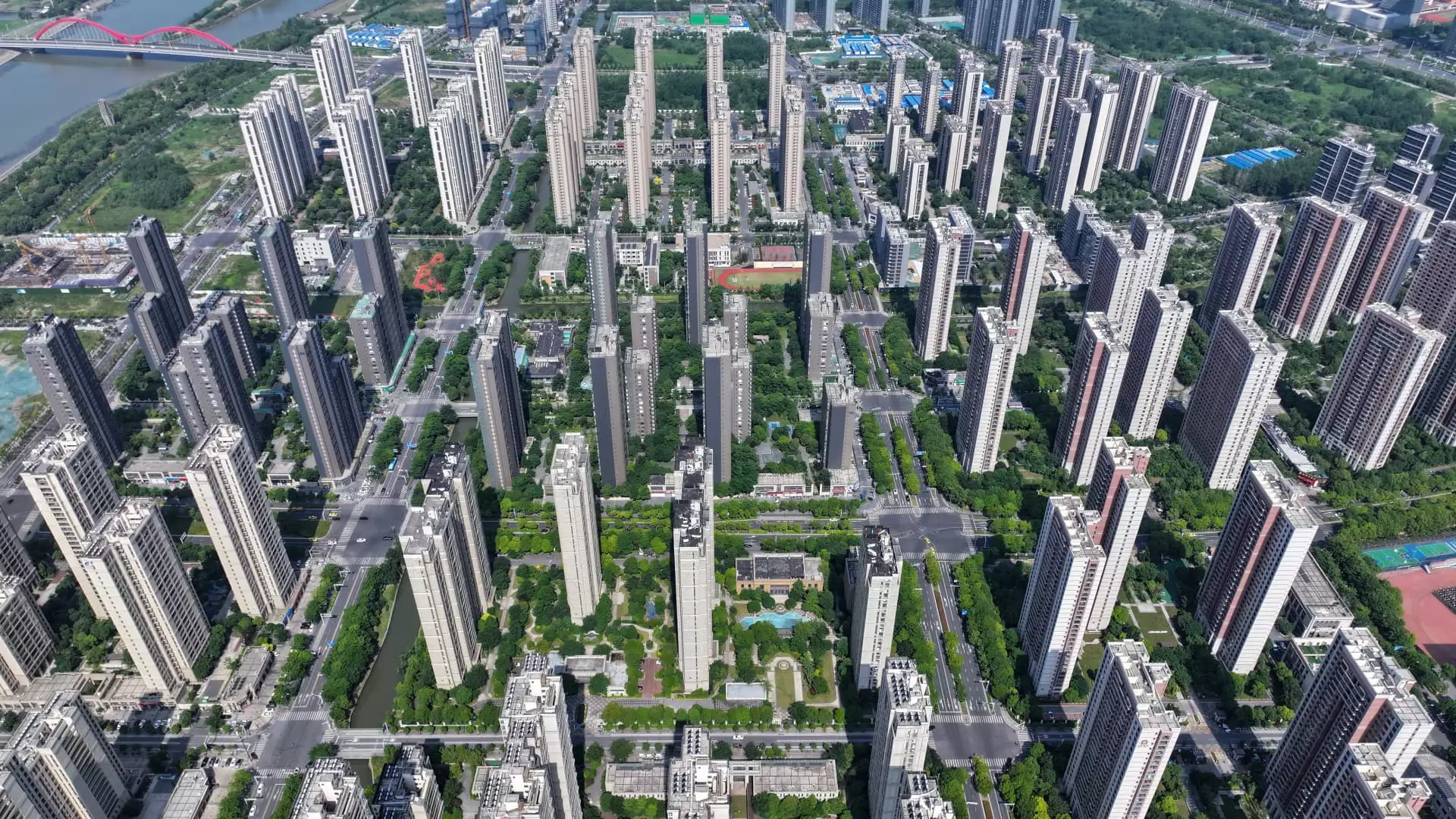In a dramatic turn of events, shares of Chinese property companies listed in Hong Kong have surged to levels not seen in over a year, invigorated by a broader stimulus wave from the Chinese government. Real estate, historically a cornerstone of China’s economy, has regained some luster, particularly within the Hang Seng Index. Leading this recovery, Longfor Group Holdings experienced a remarkable increase of over 25%, signaling a renewed investor confidence that had waned in recent times.
Notably, the sector’s revival isn’t limited to Longfor; several other companies reaped enormous benefits. Shimao Group saw its stock skyrocket by an astonishing 87%, while Kaisa Group enjoyed a handsome jump of 40.48%. These gains signify a larger trend, as established companies like China Overseas Land & Investment and China Vanke also witnessed robust rises, pushing them to their highest valuations since last year.
The upward momentum can be attributed to recent policy changes aimed at reviving the beleaguered real estate market. In response to pressing economic challenges, major cities, including Guangzhou and Shanghai, have enacted measures to instill confidence in homebuyers. Guangzhou’s bold move of scrapping home purchasing restrictions and Shanghai’s tax period adjustments represent concerted efforts to encourage activity in the housing sector.
While these developments have buoyed investor sentiment, experts like those at Morgan Stanley caution against premature optimism. They emphasize that despite potential stabilizing effects, lifting prices and stimulating substantial demand will be an uphill battle. The ongoing decline in property values suggests that the road to recovery is fraught with uncertainties.
China’s real estate sector has significantly contracted since 2020, following stringent regulations established to mitigate excessive borrowing. At one point, real estate represented over 25% of China’s gross domestic product (GDP), a testament to its importance in driving economic growth. Now, however, the ramifications of previous crackdowns are painfully evident, with stagnating demand leaving a notable gap in economic performance.
The Chinese government has made strides to ease financial stress on households and revive the real estate market through various support measures. Unfortunately, the impact of prior initiatives has been tepid, with many struggling developers still reporting losses and project delays. As we look to the future, the investments made to stimulate the economy will need to translate into tangible improvements in market conditions if long-term recovery is to be achieved.
While Hong Kong-listed Chinese property stocks have shown impressive gains in recent days, driven by governmental stimulus and favorable policy adjustments, the underlying challenges remain daunting. Analysts assert that these short-term gains need to be placed in the context of a sector still grappling with a prolonged downturn. The government’s willingness to implement supportive measures is commendable, but true revitalization in the real estate market will likely require persistent efforts beyond initial policy changes—ensuring that growth can return in a sustainable manner. Stakeholders will need to monitor developments closely as we navigate this complex landscape.


Leave a Reply